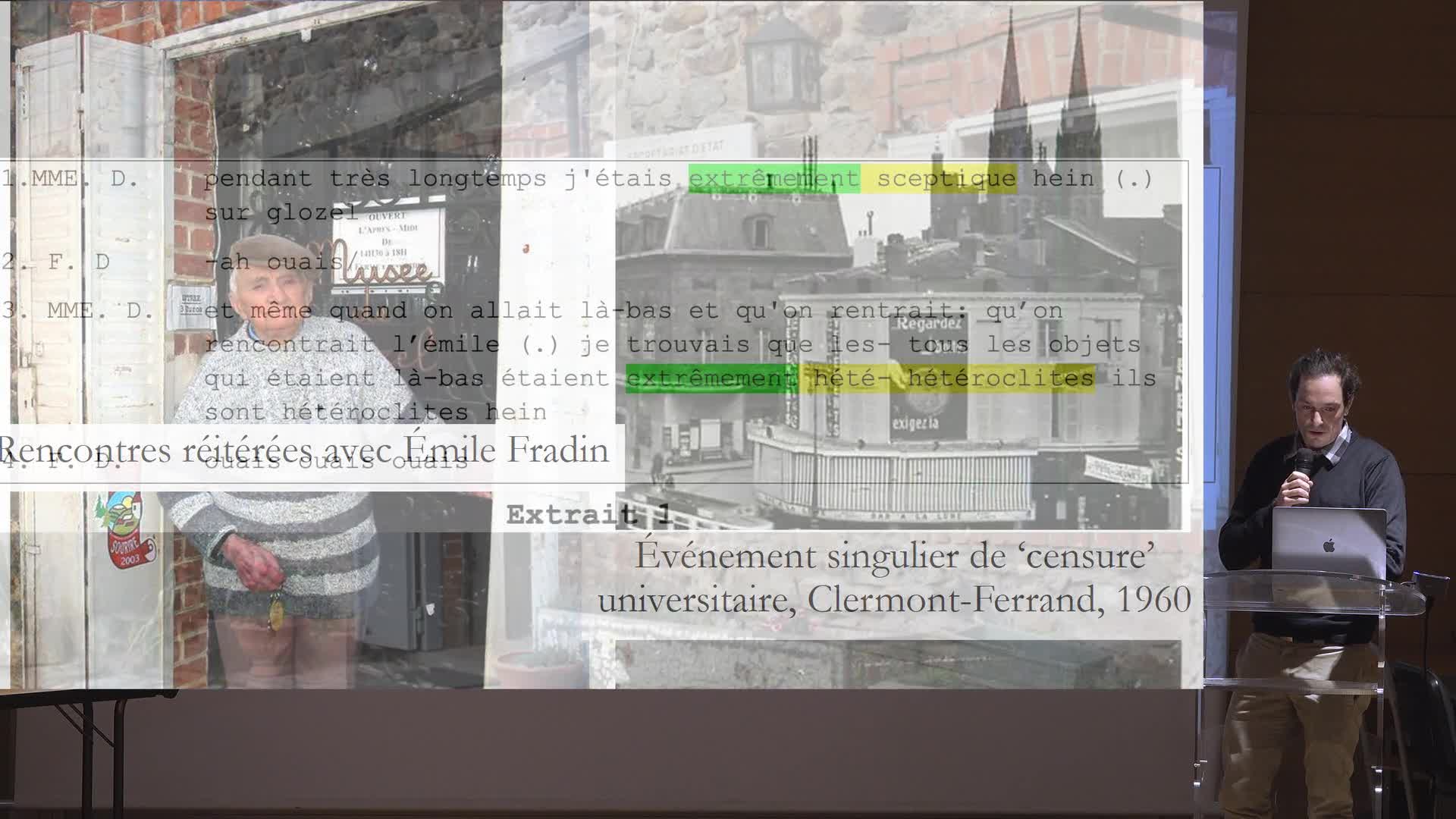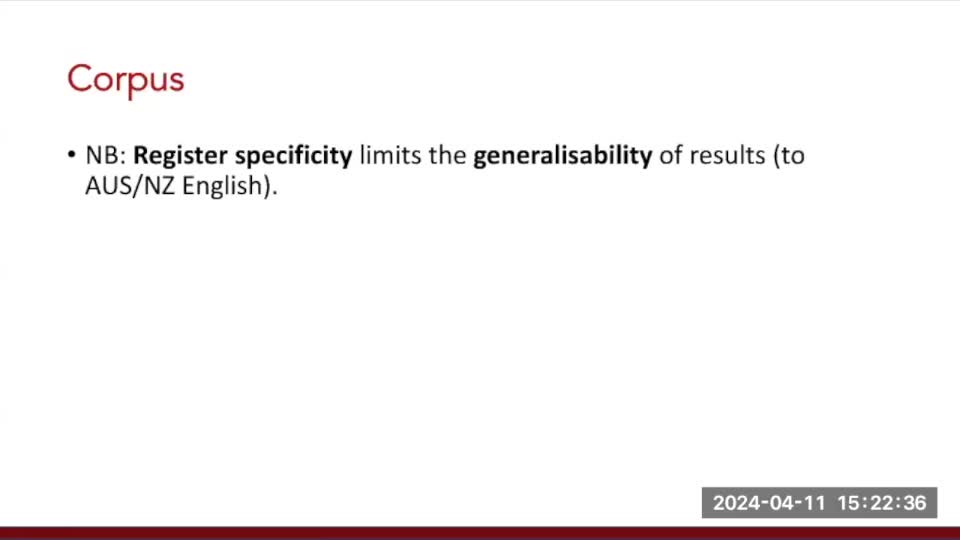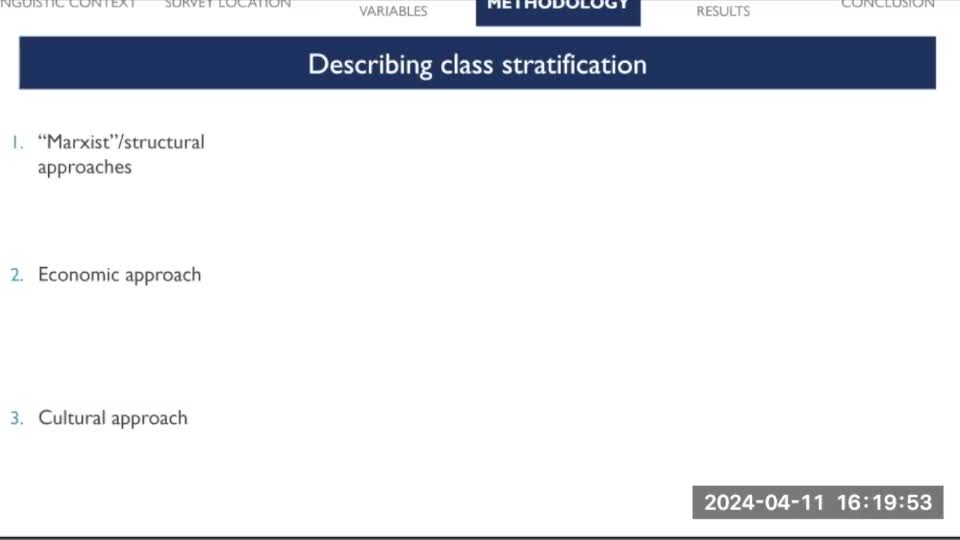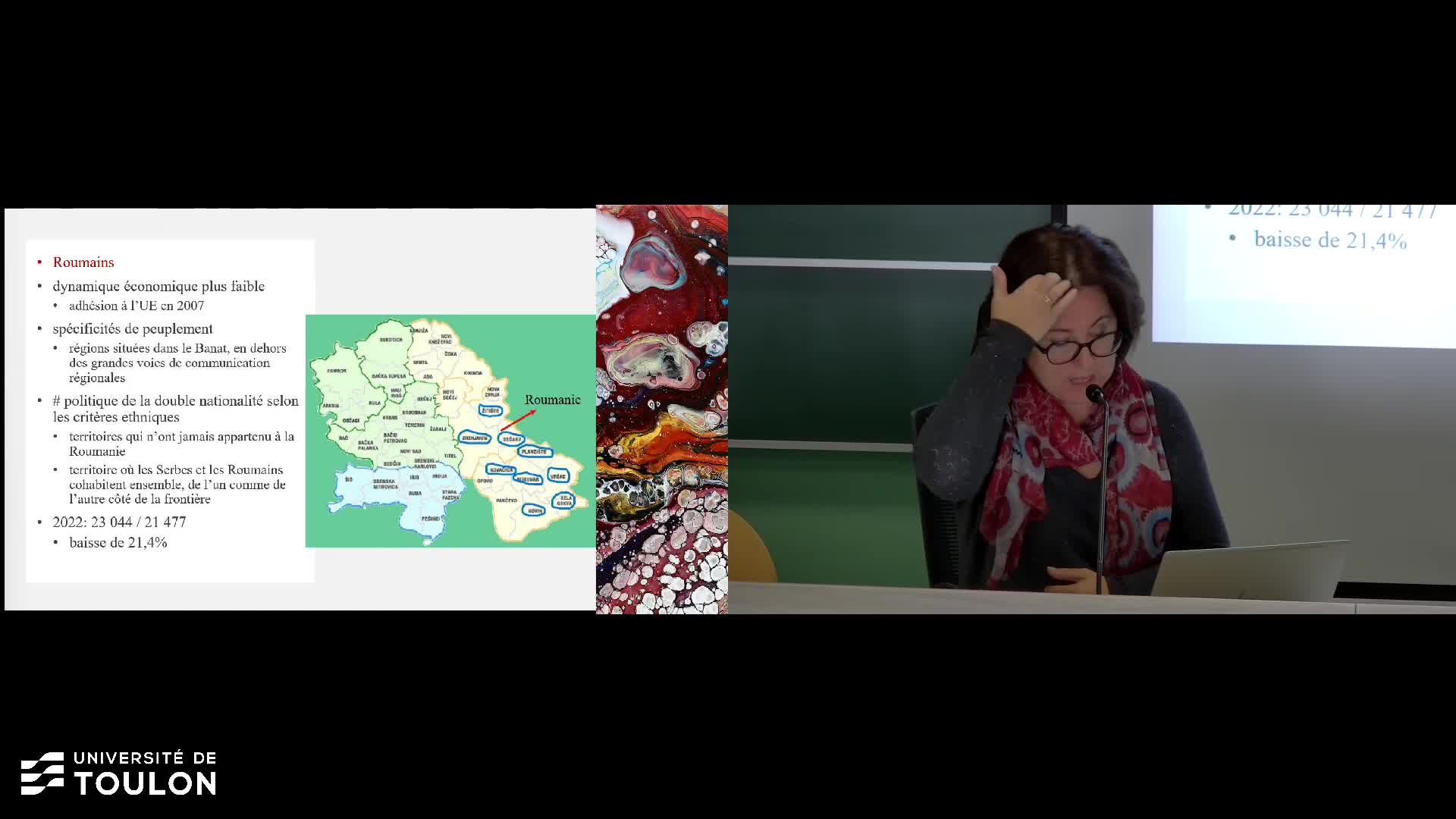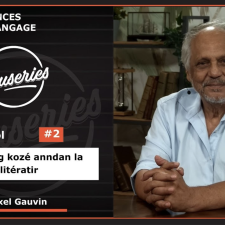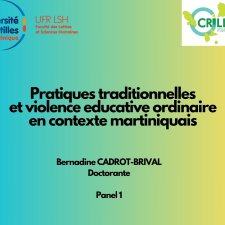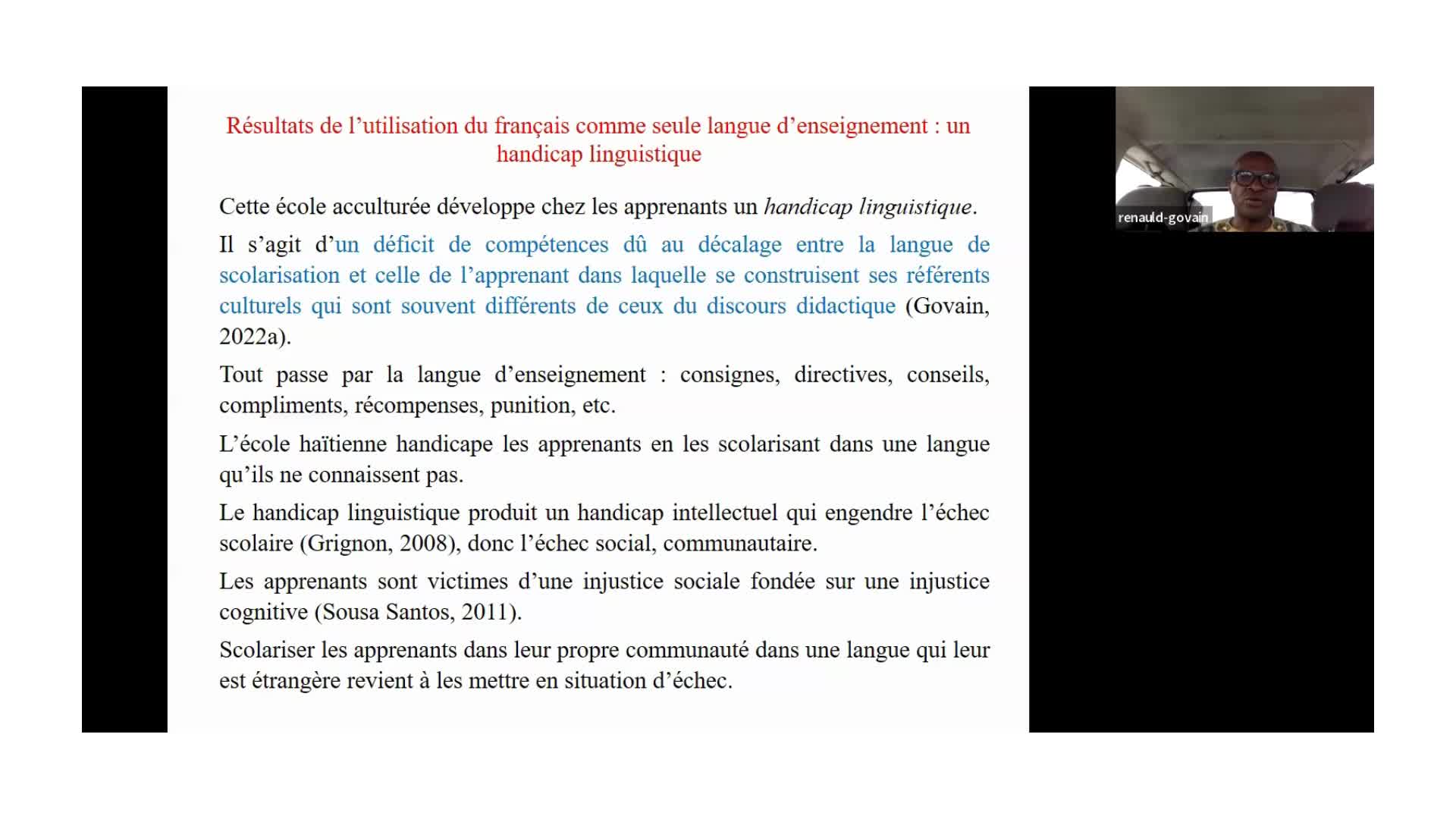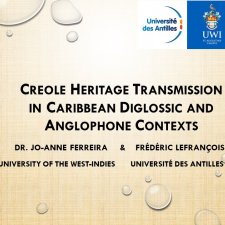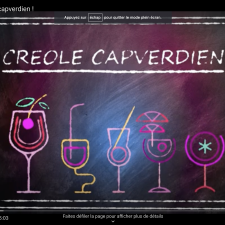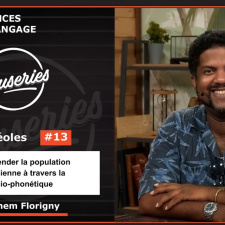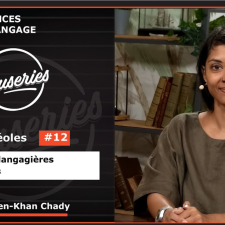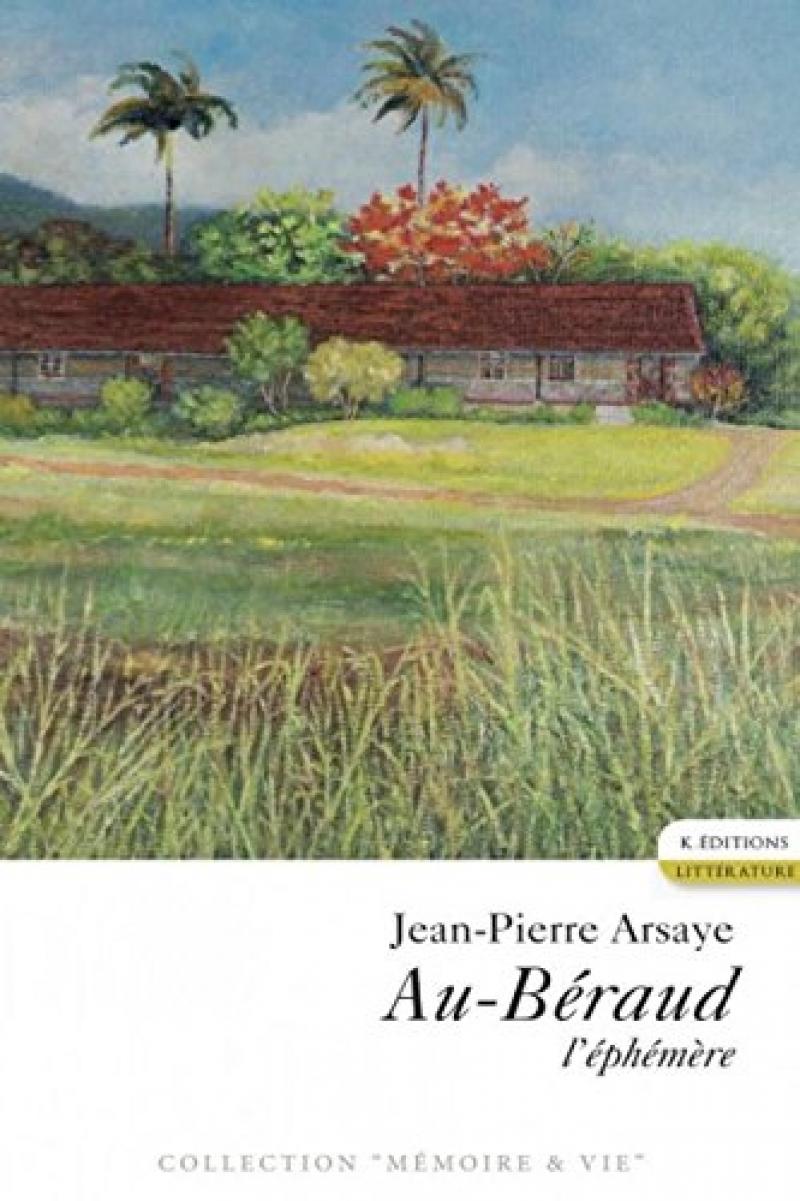Notice
“Cultural Contact and New Dialect Emergence in Large Cities: From Ethnolects to Multiethnolects”, Lars Hinrichs, University of Texas at Austin
- document 1 document 2 document 3
- niveau 1 niveau 2 niveau 3
Descriptif
Lars Hinrichs is Associate Professor in English Language and Linguistics at UT Austin (Texas, USA). The talk was chaired by Virginie Iché, Associate Professor in English Language and Linguistics at Université de Montpellier Paul-Valéry (Montpellier, FR).
In at least two different locations, London and Toronto, diasporic Jamaican Creole has developed through four successive sociolinguistic stages (described in Hinrichs 2024): from (1) the L1 of first-generation immigrants via (2) a second dialect of second-generation speakers and (3) a localized repertoire that indexes minoritized racial identities (as opposed to Jamaican ethnicity) to (4) a tributary to a highly diverse, local “feature pool” (Mufwene 2001) from which a multiethnolect (or “contemporary urban vernacular”, Rampton 2015) emerges. Given how widely multiethnolects are spoken and how broad their linguistic input is, advancement to stage (4) is the most remarkable for any diasporic repertoire in an urban contact setting. Drawing on findings from my research on Toronto Jamaican English (TJE, Hinrichs forthcoming), this paper asks which sociolinguistic prerequisites must be met for a diasporic creole to advance to Stage 4. The analysis attends to aspects of phonetics/phonology, lexis, and metadiscourse and draws comparisons between TJS (representing Stages 2 and 3) and Multicultural Toronto English (MTE, Denis et al. 2023), two relatively new urban contact varieties. The conclusion offers a discussion of similarities and differences between the feature pools of TJE and MTE and the various selection processes at play.
References
Denis, D., Elango, V., Kamal, N. S. N., Prashar, S., & Velasco, M. (2023). Exploring the vowel space of Multicultural Toronto English. Journal of English Linguistics, 51(1), 30–65.
Hinrichs, L. (forthcoming). Language contact in the Toronto Jamaican community: Culture, mobility and the renegotiation of identity. Cambridge University Press.
Hinrichs, L. (2024). Caribbean Englishes on the move: The formation of diaspora communities. In S. Hackert (Ed.), The Oxford handbook of Caribbean Englishes. Oxford University Press.
Mufwene, S. S. (2001). The ecology of language evolution. Cambridge University Press.
Rampton, B. (2015). Contemporary urban vernaculars. In J. Nortier & B. Svendsen (Eds.), Language, youth and identity in the 21st century (pp. 24–44). Cambridge University Press.
Intervention / Responsable scientifique
Thème
Documentation
Sur le même thème
-
Glozel dans les années 2020 : pour une approche ethnographique et politique du discours dans la (re…
DanosFélixL’affaire Glozel dispose encore de ses pro- et de ses anti-. Félix Danos questionne le maintien d’un malentendu entre deux parties qui pourtant souhaitent la même chose : la valorisation d’un ensemble
-
"Double modal constructions in Australian and New Zealand English: A computational sociolinguistic …
MorinCameronIn this presentation, I report the first large-scale corpus study of double modal usage in Australian and New Zealand Englishes, based on a multi-million-word corpus of geolocated automatic speech
-
"Investigating the social meaning of language variation in the US South: Epistemological elements o…
BrunetMarc-PhilippeDuring this talk, I question the significance or relevance of using the different methodologies and epistemologies of the three “waves” of sociolinguistic research (following Eckert (2012)’s
-
Une région qui pose des défis aux notions de territoire et de frontière : la Voïvodine (Serbie)
DjordjevićKsenijaLa situation géopolitique actuelle met au cœur de l’actualité la notion même de territoire et la pluralité des modes de rapport d’une population à son territoire, imposant de revenir aux fondamentaux
-
Les Causeries Sciences du Langage - Kozri Kréol #2 - Nout lang kozé anndan la litératir
Les Causeries Sciences du Langage - Kozri Kréol #2 - Notre langue dans la littérature
-
Pratiques traditionnelles et violence éducative ordinaire en contexte martiniquais
Cadrot-BrivalBernadineIntervention de Mme Bernadine Cadrot-Brival, doctorante en culture et langues régionales, sur la violence éducative en Martinique et ses rapports avec l'usage du créole.
-
Le français comme langue d'enseignement et échec de l'éducation en Haïti
BélaiseMaxGovainRenauldCommunication du Professeur Renaud Govain, de l'UEH dans le cadre de la journée d'étude "Problématiques d'éducation dans les sociétés créoles. Perspectives de recherche."
-
Creole Heritage Transmission in Caribbean Diglossic and Anglophone Contexts
LefrançoisFrédéricFerreiraJo-Anne S.BélaiseMaxCommunication presentée lors de la journée d'étude “Problématiques d’éducation en sociétés crécoles. Perspectives de recherche”, Université des Antilles, Campus de Schoelcher, le 27 mars 2024.
-
Découvrez le créole capverdien !
QuintNicolasLe Cap-Vert est un archipel d'îles qui se situe à 500 kilomètres environ à l'ouest de Dakar et qui tire son nom historiquement de la péninsule de Dakar qui s'appelle le Cap-Vert. Et le Cap verdien
-
Langue et culture créoles : Appréhender la population mauricienne à travers la socio-phonétique
ChadyShimeen-KhanFlorignyGuilhemLangue et culture créoles #13 - Appréhender la population mauricienne à travers la socio-phonétique
-
Langue et culture créoles : Pratiques langagières des jeunes
GeorgerFabriceChadyShimeen-KhanCauseries Sciences du langage - Langue et culture créoles #12 - Pratiques langagières des jeunes
-
Table ronde sur Au-Béraud l'éphémère
LefrançoisFrédéricDésertGéraldRosierJean-MarcArsayeJean-PierreTable ronde sur Au-Béraud l'éphémère, ouvrage de Jean-Pierre Arsaye, lors de l'opération en faveur de Présence Kréyol.


